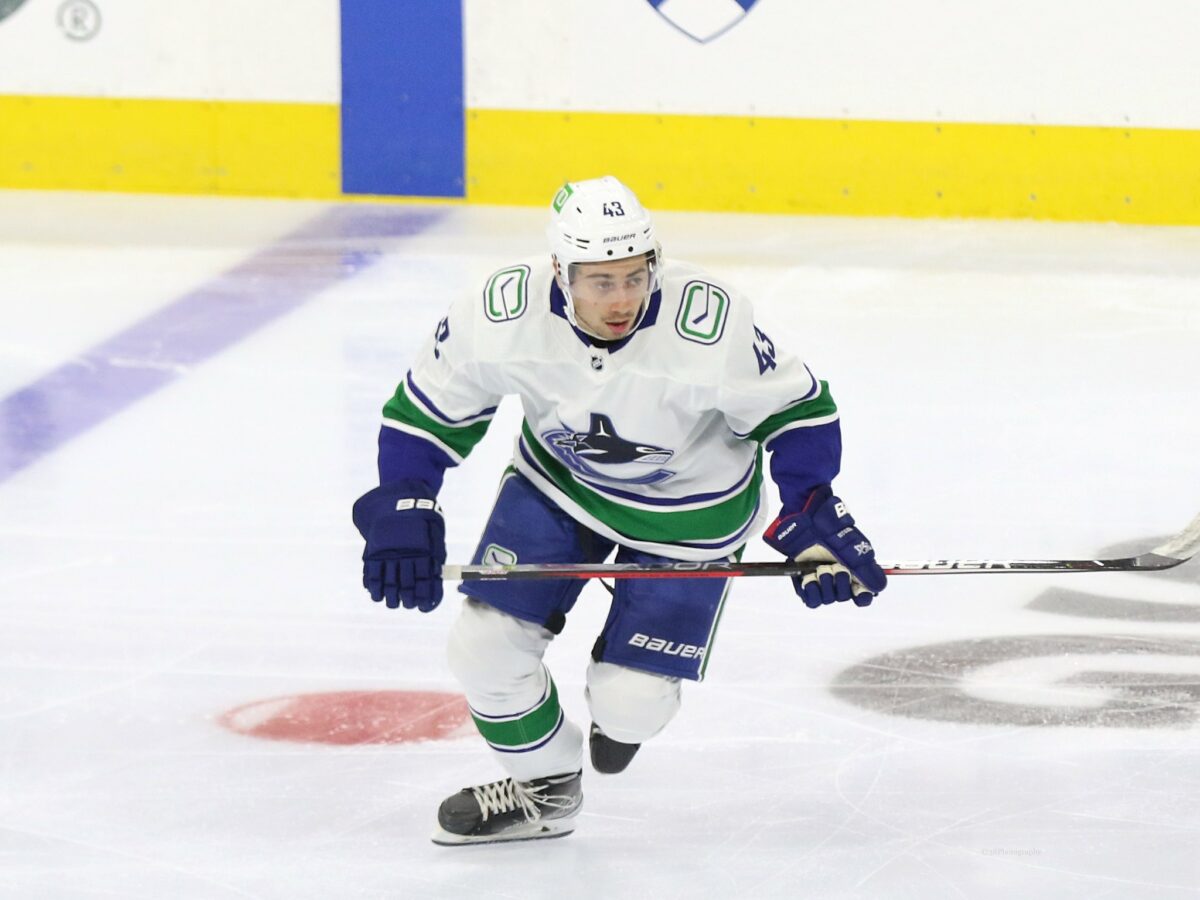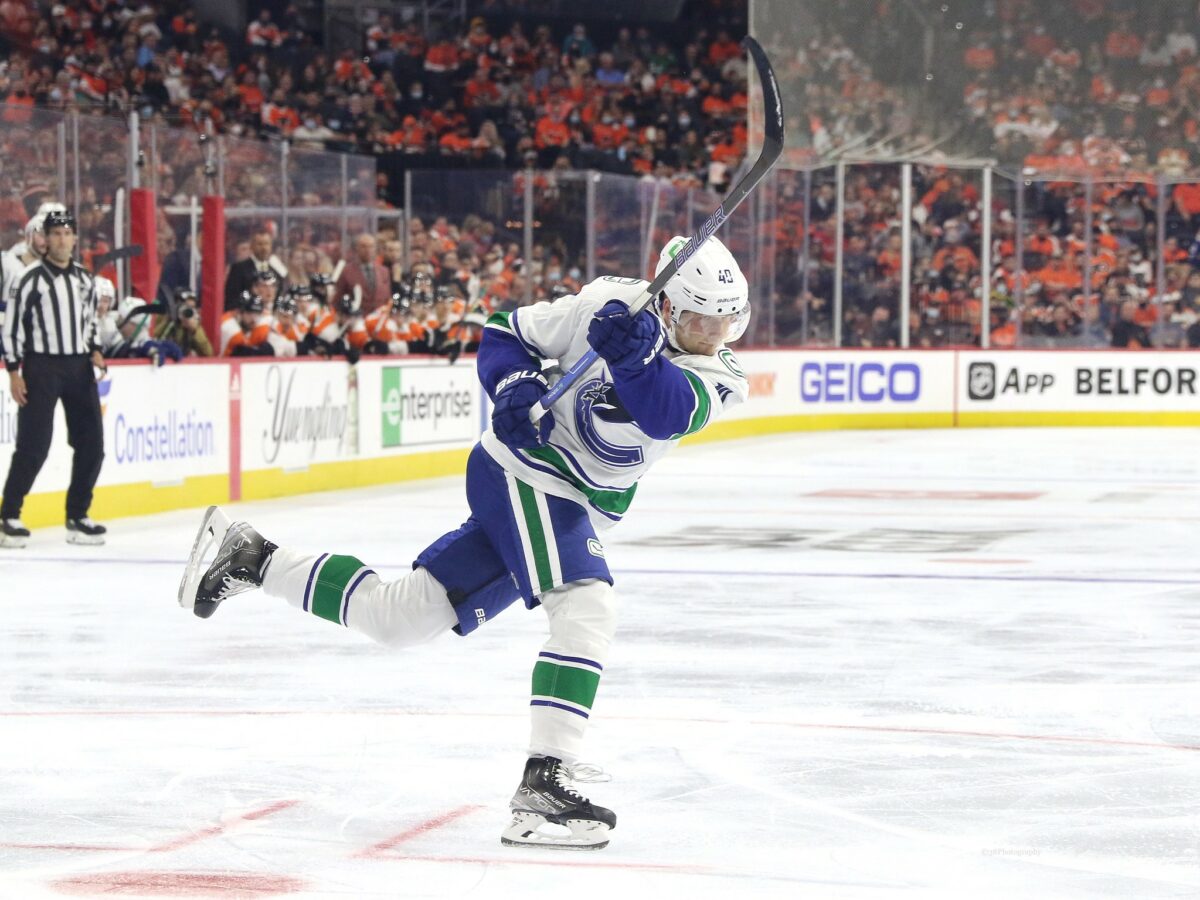It’s easy to overreact through the early stages of the regular season. Teams like the Toronto Maple Leafs, Anaheim Ducks and Los Angeles Kings all slumped out of the gate before going on their own runs, respectively (and still are) that have them in or fighting for a playoff position. For the Vancouver Canucks however, that run hasn’t happened yet and their recent slump puts their season in jeopardy. Yes, they won last night 3-2 over the Winnipeg Jets, who were coming off of a back-to-back, but Vancouver is still 3-6-1 over their previous 10 contests.
In the offseason, general manager Jim Benning went out of his way to change some of the pieces and culture with the organization to hopefully bring balance and stability to all three positional groups. Trades with the Arizona Coyotes and Dallas Stars brought in players Oliver Ekman-Larsson, Conor Garland and Jason Dickinson. In contrast, other moves like buying out goaltender Brayden Holtby along with forward Jake Virtanen and sending Nate Schmidt to the Winnipeg Jets opened up rosters spots and opportunities for others.
That then made way for the signings of backup Jaroslav Halak and defensemen Tucker Poolman, all while re-signing two of their biggest pieces in Elias Pettersson and Quinn Hughes. Yet from the crease out, the Canucks seem to be near the bottom of the NHL when it comes to every major category. Benning acknowledged his team’s poor start after their latest loss. “Of course, I feel responsible; I’m the leader of this group,” Benning said. “The moves we made this summer, I would have never envisioned we got off to this start. But we have. Now we have to deal with it and we’ve got to figure it out.”
Their defensive woes aren’t being solved, the lack of offense isn’t helping, and their special teams, well, haven’t been all that special.
Canucks’ Defensive Woes
The good teams around the league have a good balance when it comes to their positional groups. When one has a bad game, the other areas make up for it. If a team is struggling to score, the defensive side holds down the fort until the offense can breakthrough. If the goaltender has given up a few early goals, the offense takes over and gets them back in the game. Right now, the Canucks defensive woes are being put on display, and nothing is being done to counteract the holes along the blueline.

The crazy thing about it is that Vancouver doesn’t have a plethora of injuries they have to overcome. In fact, they’ve actually had players return to the lineup from leave. Travis Hamonic returned just over a week ago. Outside of Poolman being suspended for two games for high-sticking Colorado Avalanche forward Kiefer Sherwood, every player has been healthy and in on a regular basis.
Despite all of the additions and relatively positive health, the team ranks near the bottom of the league in most defensive statistics. They rank 29th in the league in goals against (GA) with 61 and 30th in goal differential (GF) at minus-15. If Vancouver wants to somehow turn this season around and get into anything that resembles a playoff race, it will have to start in the defensive zone.
Canucks’ Offensive Struggles
If the defensive zone can get things figured out, then the focus should shift towards the offense. Vancouver somehow, this offseason was able to get out from some reasonably big contracts to players who weren’t producing a whole lot, including Antoine Roussel, Jay Beagle and Loui Eriksson, who have combined for a total of two points in 45 combined games. In return, they brought in other players who have produced in the past. Garland has been a great addition to the team, sitting third in points with 13 across 17 games, but aside from their top-six, the offensive struggle has really hurt the Canuck’s so far.
Related: 5 Trades The Canucks Should Consider Making This Season
While they aren’t nearly as bad as they are defensively compared to the league, it’s still not what the expectation was heading into the season. The Canucks are tied for 18th across the league in goals for with 46, but playing in 18 games already has given them an advantage. If we take the percentage based on games played, Vancouver is actually 27th in the NHL, averaging just 2.5 goals-per-game (GPG).

The one silver lining that can be taken from this is their shooting percentage (S%) sits at just 7.7%, which is 28th overall. Maybe their luck turns and a few more pucks find their way into the back of the net, but it more likely has to do with the lack of quality shots being taken.
Canucks’ Special Teams Disaster
This has been an area of concern for the Canucks for some time now and still looks like it needs a lot of work. What’s crazy is there amount of talent Travis Green has to work with and configure. It’s not just one of the power play or penalty kill, but special teams overall have been an unmitigated disaster.
Often when something is out of sync, it’s evident to everybody, especially the opining team. The power play for all the weapons Vancouver has, has been underwhelming, to say the least. With the likes of Pettersson, Hughes, Garland, Miller, Brock Boeser, Nils Hoglander, Vasily Podkolzin and captain Bo Horvat, the Canucks can’t seem to get into any rhythm and are ranked 22nd overall in power-play percentage (PP%), scoring on just 16.9% of their opportunities.
You may also like:
- Canucks News & Rumours: Lankinen, Lekkerimäki & Patterson
- NHL Rumours: Kyrou Trade Heating Up, Weegar Interest & Deals Ready
- Canucks News & Rumours: Chytil, Dervin, Bains & What’s Next?
- Canucks News & Rumours: Hronek, Cootes & Remembering Ferland
- Filip Hronek a Surprising Front-Runner for Canucks’ Next Captain
The penalty kill (PK) somehow has been even worse, in fact, it’s on terrifying projection to be one of the worse penalty kills in recent history. Though it is just 18 games into the season, Vancouver is dead last in the NHL, killing off just 60.3% of its penalties taken. What’s worse is that Vancouver isn’t doing themselves any favors by taking the seventh most penalties, averaging 9.9 minutes per night. That’s almost five penalties a game, and based on the PK numbers, that results in roughly two goals against per game.
Time is running out for Green and Benning to get things turned around in Vancouver, and if there aren’t signs of life soon, there could be some major changes coming in the coming months.